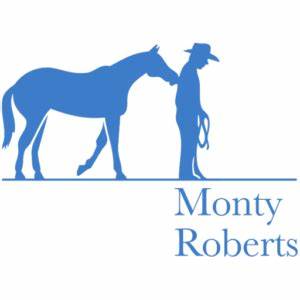Press Release






- For Immediate Release:
- Contact
- Marty Irby
- marty@animalwellnessaction.org
America’s Leading Equine Protection Groups Commemorate the 50th Anniversary of the Horse Protection Act
WASHINGTON, D.C. – Today, Animal Wellness Action (AWA), the Animal Wellness Foundation (AWF), Center for a Humane Economy (CHE), American Horse Protection Society, Join-Up International, and the Horses for Life Foundation commemorated the Golden Anniversary of the enactment of the bipartisan Horse Protection Act (HPA), signed into law on December 9, 1970 by President Richard M. Nixon, and authored by the late U.S. Senator Joseph D. Tydings, D-M.D.
While cause for celebration, the anniversary is also a reminder that the HPA has not been improved in 50 years. There has, however, been an accord between key allies and adversaries of the U.S. Senator Joseph D. Tydings Memorial Prevent All Soring Tactics (PAST) Act, H.R. 693, providing a potential pathway in the waning days of the 116th Congress to dramatically strengthen the federal law against soring.
“Today, we commemorate the signing of the very first law designed to protect our nation’s treasured iconic equines and we honor the primary Senate author of the legislation — the great Joe Tydings of Maryland,” said Marty Irby, executive director at Animal Wellness Action who was recently honored by Her Majesty, Queen Elizabeth, II for his work to protect horses. “Senator Tydings would be right by our side in trying to forge a solution to ban inhumane and barbaric practices and to bring relief to horses after decades of torment. AWA and its partners are urging lawmakers to pass the anti-soring compromise before the year ends.”
“As we commemorate the 50th anniversary of the Horse Protection Act (HPA), it is important to remember there is more work to be done,”said U.S. Rep. Ted Yoho, R-Fla. The inhumane practice of horse soring continues. In the spirit of the HPA’s bipartisan history, I want to thank my fellow veterinarian Rep. Kurt Schrader for teaming up with me to pass the Prevent All Soring Tactics (PAST) Act last year. Senator Joe Tydings authored the HPA and now it is up to us to carry the torch even further to protect these majestic animals.”
“The Horse Protection Act’s Golden Anniversary is the perfect time for Congress to enact new reforms to protect horses in the U.S., but legislation alone cannot change a human heart or the culturally violent practices in the equine world,” said Monty Roberts, the founder of Join-Up International, and best-selling author of The Man Who Listens to Horses. “Following the charge Her Majesty, Queen Elizabeth, II bestowed upon me, we must continue to work directly with those who haven’t been taught the concepts and principles of natural horsemanship I have sought to perfect and have demonstrated in 41 countries with over 10,000 individual horses. We must help them, we must teach them, and we must reward them for the progress that has been made.”
“My grandfather loved horses, he began riding at the age of four, was one of the last to ride in the U.S. Calvary, and he spent the bulk of his life working to protect these icons,” said Ben Tydings Smith on behalf of the Tydings family. “Our family joins horse protectors across the nation in celebrating the 50th anniversary of the Horse Protection Act’s signing, and we are proud to continue working to cement my grandfather’s legacy by pressing for upgrades to the statute. We call on the U.S. Senate to make the necessary adjustments it’ll take to clear the U.S. Senator Joseph D. Tydings Memorial Prevent All Soring Tactics (PAST) Act in the Upper Chamber and see this modernization fulfill the original intent of the law Joe Tydings authored.”
“The 50th anniversary of the Horse Protection Act (HPA) is a reminder that good legislation often becomes outdated, which necessitates contemporary reforms. Such is the case with the Prevent All Soring Tactics (PAST) Act, which aims to end the horrific abuse of horse soring.” said Allondra Stevens, founder of the Horses for Life Foundation. “Following the victorious passage of the bill in the U.S. House, its only path through the U.S. Senate is through modifications made to the language that include; a ban on chains and other action devices, prohibits barbaric tail braces, and raises penalties to a felony. We hope our federal lawmakers will end the 50-year cap on the HPA by passing the revised PAST Act in the 116th Congress.”
“For too long horse advocates have fought to protect horses from the cruel spectacle of soring, only to run into a dead end in the United States Senate,” said Scott Beckstead, director of campaigns at the Center for a Humane Economy. “Now with this compromise legislation, we finally have an opportunity to end soring and impose meaningful enforcement penalties on the scofflaws who put winning a blue ribbon above the welfare of the horses they pretend to love.”
“It’s a special day commemorating the Horse Protection Act signed into law by President Richard Nixon, and I hope Senator Richard Shelby will show leadership during these trying times, and help protect American equines,” said Hampton Reid, Jr., chairman of the American Horse Protection Society from Mobile, Alabama.
Background:
The U.S. House of Representatives most recently passed the Horseracing Integrity and Safety Act, H.R. 1754, led by Reps. Paul Tonko, D-N.Y., and Andy Barr, R-Ky., that would create a uniform national standard for drug testing and ban race-day doping in U.S. Horseracing. Though U.S. Senate Majority Leader Mitch McConnell introduced a companion measure, that bill faces uncertain prospects in the weeks ahead. The measure is supported by The Jockey Club, The Breeders’ Cup, The Jockey’s Guild, and all the parent organizations to all three Triple Crown races: The Kentucky Derby, The Preakness Stakes, and The Belmont Stakes.
In July 2019, the House passed the U.S. Senator Joseph D. Tydings Memorial Prevent All Soring Tactics (PAST) Act, H.R. 693, by a vote of 333 to 96, with all Democrats and the majority of Republicans supporting the measure that would ban large, stacked shoes and ankle chains in the showring, create a modernized inspection program, and increase penalties for violators of the Horse Protection Act (HPA) of 1970. But, more than 16 months after passage of the legislation led by U.S. Reps. Ted Yoho, R-Fla., and Kurt Schrader, D-Oregon, and tremendous work to achieve a consensus on compromise legislation that would have largely accomplished the objectives of the PAST Act, the Senate hasn’t taken even the first step of action. If the Senate does not act on the measure, it will mark 50 years of stasis on the issue.
In July 2020, the U.S. House of Representatives passed the Horse Transportation Safety Act, H.R. 1400, championed by Rep. Steve Cohen, D-Tenn., who has long worked to better the lives of equines in the Volunteer state and across the nation. H.R. 1400, that cleared the House tacked on to a larger transportation package, would ban the transportation of horses across state lines in ‘double decker’ trucks or trailers containing two or more levels stacked on top of one another, but the Senate’s seen no action on this reform effort.
In 2020, U.S. House Agriculture Appropriators saw fit to increase funding for HPA enforcement from $1 million to $2 million thanks to the work of U.S. Rep. Hal Rogers, R-Ky. The funding measure included language suggesting a failed 2017 Obama-era regulation to end soring should be implemented in 2021, thanks to the work of Rep. Steve Cohen, D-Tenn. In addition, Cohen also championed a House floor amendment to provide $750,000 for a new USDA Office of Inspector General audit of its Horse Protection Program in 2021, yet not a single one of these initiatives were included in the Senate Agriculture Appropriations FY21 spending bill.
Despite an overwhelming amount of support for a floor amendment to protect wild horses and burros on public lands, the Senate Interior Appropriations bill for FY21 failed to include a $11 million provision approved by the House that would require the Bureau of Land Management to utilize funding for PZP birth control instead of the mass round-up and incarceration of tens of thousands of our iconic wild horses and burros. Instead, the Senate Appropriations Committee chose to provide an additional $14 million for implementation of a wild horse eradication plan known as the “Path Forward.”
In July 2020, the House also passed a $5 million provision championed by Rep. Barr, co-chair of the Congressional Horse Caucus, that would provide funding for the Veterans Affairs Administration’s Adaptive Sports Grant Program to help pair our American heroes with horses that could otherwise be subject to slaughter. Equine-assisted therapy has long been proven to alleviate pain and trauma in veterans that are victims of PTDS. Despite the broad, nonpartisan appeal of this program, Senate appropriators failed to include this measure in the FY21 VA spending bill released in November.
And finally, the FY21 Agriculture Appropriations spending bill the Senate Committee released in November failed to include the annual horse slaughter defund language that has been maintained for most of the past 15 years, a provision that was included in the House-passed FY21 spending measure and in both the House and Senate’s FY20 spending bills and final year end funding measure for 2020. Failure to include the annual defund language that prevents horse slaughter via a de facto ban in defunding USDA inspections of horse plants from opening in the U.S. provides a pathway for the resumption of slaughter of domesticated and wild equids on U.S. soil.
The Center for a Humane Economy (“the Center”) is a non-profit organization that focuses on influencing the conduct of corporations to forge a humane economic order. The first organization of its kind in the animal protection movement, the Center encourages businesses to honor their social responsibilities in a culture where consumers, investors, and other key stakeholders abhor cruelty and the degradation of the environment and embrace innovation as a means of eliminating both.
Animal Wellness Action (Action) is a Washington, D.C.-based 501(c)(4) organization with a mission of helping animals by promoting legal standards forbidding cruelty. We champion causes that alleviate the suffering of companion animals, farm animals, and wildlife. We advocate for policies to stop dogfighting and cockfighting and other forms of malicious cruelty and to confront factory farming and other systemic forms of animal exploitation. To prevent cruelty, we promote enacting good public policies and we work to enforce those policies. To enact good laws, we must elect good lawmakers, and that’s why we remind voters which candidates care about our issues and which ones don’t. We believe helping animals helps us all.
The Animal Wellness Foundation (Foundation) is a Los Angeles-based private charitable organization with a mission of helping animals by making veterinary care available to everyone with a pet, regardless of economic ability. We organize rescue efforts and medical services for dogs and cats in need and help homeless pets find a loving caregiver. We are advocates for getting veterinarians to the front lines of the animal welfare movement; promoting responsible pet ownership; and vaccinating animals against infectious diseases such as distemper. We also support policies that prevent animal cruelty and that alleviate suffering. We believe helping animals helps us all.